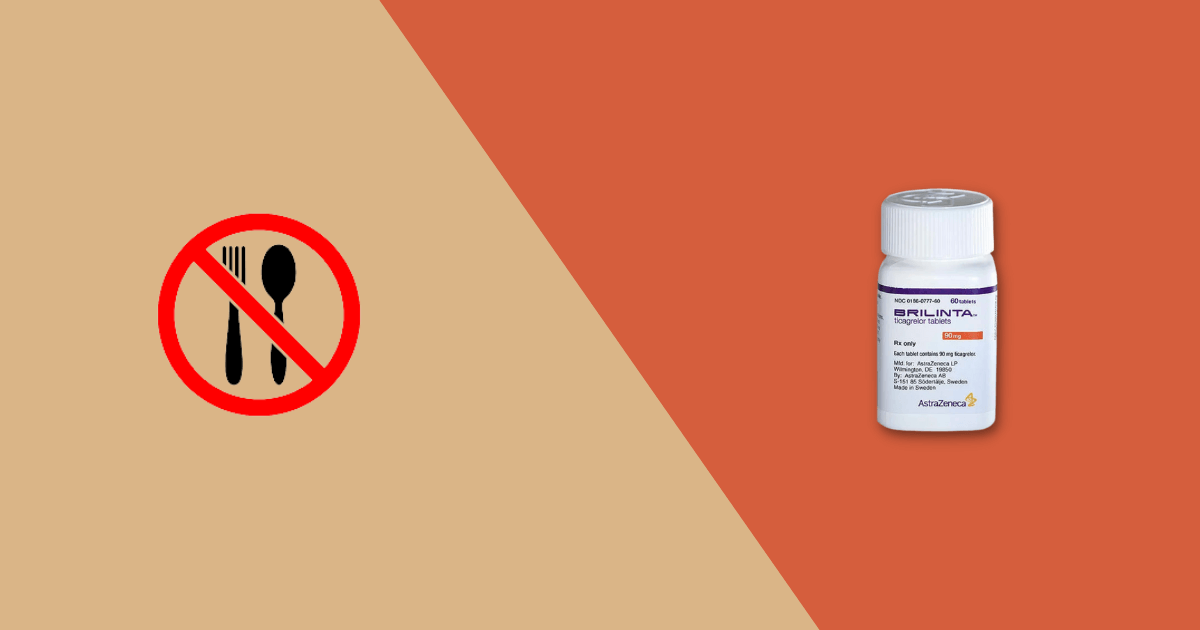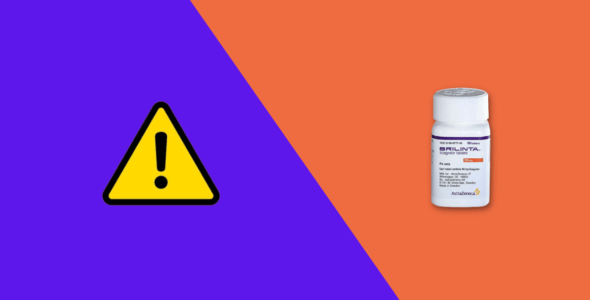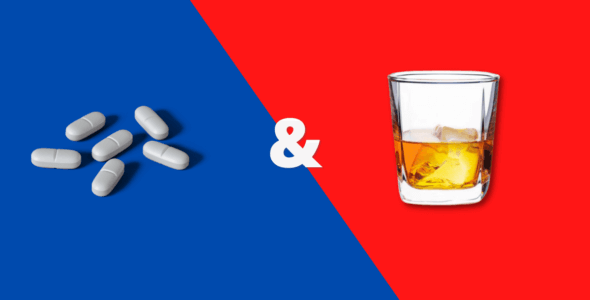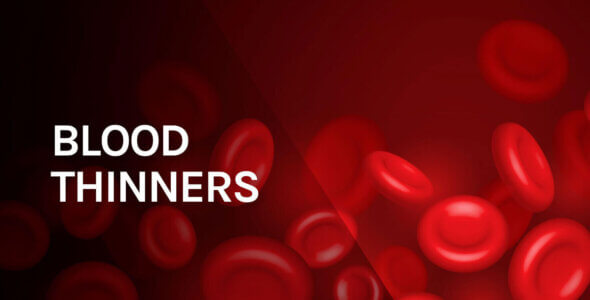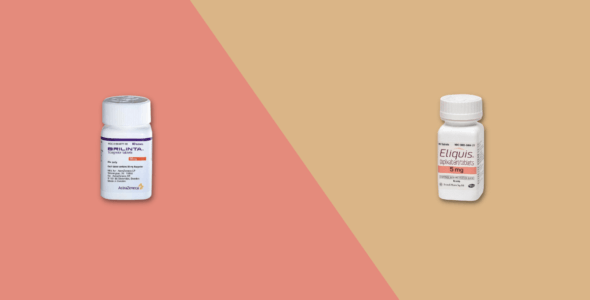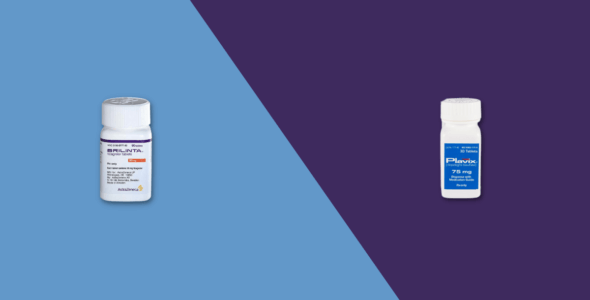What foods to avoid while taking Brilinta
Table of contents
Brilinta contains ticagrelor a blood thinner that reduces your risk for cardiovascular problems such as heart attacks (myocardial infarction) or stroke, by preventing the formation of blood clots that cause them. While there are no specific foods (other than grapefruit juice) that are strictly prohibited while taking Brilinta, it is recommended to avoid certain foods including those high in fat, sugar, and calories.
Here we will discuss what Brilinta is, how it works, what its side effects are, its drug interactions, and what foods you should avoid and what foods you may consume safely.
What is Brilinta?
Brilinta is an FDA-approved medication manufactured by AstraZeneca. It is used to reduce the risk of heart attacks, strokes, and death from heart disease caused by blood clots blocking blood vessels. It’s prescribed to adults who:
- Have previously had a heart attack
- Have coronary artery disease (CAD) and are at a high risk of having a heart attack or a stroke
- Have acute coronary syndrome (ACS), which occurs when blood flow to the heart is suddenly blocked
- Have ACS and who have been treated with a stent
Brilinta is available in tablet form, in the following doses: 60 mg and 90 mg tablets. Your loading and maintenance dose of Brilinta is based on the condition you are being treated for. Take Brilinta with a daily dose of aspirin of 75-100 mg. The combination of aspirin and an inhibitor such as Brilinta is called dual antiplatelet therapy (DAPT).
You are advised to read the drug information and medication guide provided with this medicine and to speak with a healthcare professional for medical advice about any changes to your dose so they can monitor and evaluate your condition.
What are the side effects of Brilinta?
The most common side effects of Brilinta in clinical trials include:
- An increased risk of minor bleeding, including nosebleeds and bruising
- Shortness of breath
- Dizziness
- Nausea
More serious side effects of Brilinta include:
- Slow heart rhythm
- Serious bleeding such as serious internal and external bleeding that could potentially be fatal
- Life-threatening allergic reactions that could cause swelling in your face, mouth, or throat, heart palpitations, or problems breathing
If you experience any of these serious side effects, stop taking Brilinta and seek medical attention immediately. You are encouraged to report the negative side effects of prescription drugs to the FDA. Visit www.fda.gov/medwatch, or call 1-800-FDA-1088.
Brilinta drug interactions
Brilinta can interact with other medications. These include:
- Any medications taken to treat heart conditions such as high blood pressure
- Statins for the treatment of high cholesterol – simvastatin
- Any blood thinners – clopidogrel, heparin, warfarin
- Digoxin
- Pain killers – codeine, ibuprofen
- Antibiotics – erythromycin
- Medications taken to treat HIV/AIDS
- Antifungal medicines taken orally – ketoconazole
- Any anti-seizure medications – carbamazepine, phenytoin
Other drugs may interact with Brilinta, including prescription drugs and over-the-counter medicines, vitamins, and herbal products. Tell your healthcare professional about all of your medications including any supplements you are taking.
Brilinta contraindications
You should not use Brilinta if you:
- Are allergic to the active ingredient ticagrelor, or to any of the other ingredients in Brilinta
- Have ever had bleeding in your brain
- Are currently bleeding
Talk to your doctor about your medical condition before using Brilinta if you:
- Have ever had a stroke
- Have ever had stomach ulcers or colon polyps
- Have any liver problems
- Have asthma or chronic obstructive pulmonary disease (COPD)
- Have recently had surgery or a serious injury
- Are pregnant or are planning to become pregnant
- Are breastfeeding or are planning to breastfeed
What foods should I avoid while taking Brilinta?
You must not drink grapefruit juice while taking this medication. Grapefruit juice can block one of the enzymes your body uses to break down Brilinta in the body. Grapefruit juice may increase the effects of Brilinta and increase your risk of bleeding. Speak to your doctor for medical advice.
What are the best foods to eat while taking Brilinta?
There are no specific foods that you need to eat while taking Brilinta. However, it is generally recommended to eat a healthy diet low in fat, sugar, and calories to prevent high blood sugar.
Unlike other anticoagulants, such as warfarin, you can eat green leafy vegetables such as spinach, kale, and broccoli, or other food rich in vitamin K-rich.
Brilinta can be taken with or without food. Food will not affect how well Brilinta works or how much is absorbed into your body.
How does Brilinta work?
The active ingredient in Brilinta, ticagrelor, inhibits platelet activation by binding to receptors on the surface of your platelets. This stops them from being able to stick together preventing the process that causes clotting.
Who can take Brilinta?
Brilinta can be used in adults who have previously had a heart attack, have coronary artery disease (CAD) and are at a high risk of having a heart attack or a stroke, have acute coronary syndrome (ACS), which occurs when blood flow to the heart is suddenly blocked, or adults who have ACS and who have been treated with a stent.
What should I know about Brilinta vs. Plavix?
Both Brilinta and Plavix are used to reduce the risk of severe events such as heart attack and stroke.
Both drugs are classed as antiplatelets and both may cause similar side effects, such as an increased risk for bleeding.
There are differences between these medications. Plavix is taken once daily, and Brilinta is taken twice daily. They also have different drug interactions. Brilinta contains ticagrelor as the active ingredient, Plavix contains clopidogrel.
RELATED: Brilinta vs Plavix
Medically reviewed
A medical professional has reviewed this article.


Jamie Winn, PharmD
Jamie Winn, PharmD
Dr. Jamie Winn received his Doctor of Pharmacy in 2002 from the University of South Carolina College of Pharmacy, Columbia, SC. Jamie is a medical reviewer for NiceRx.

